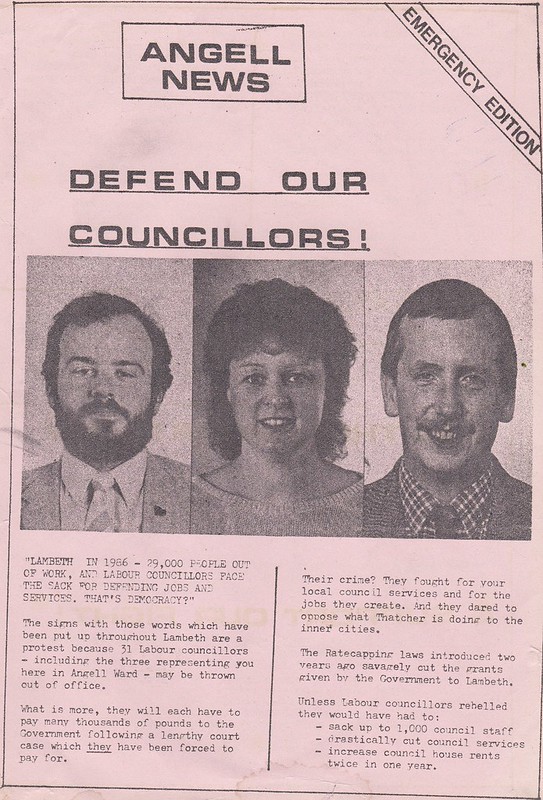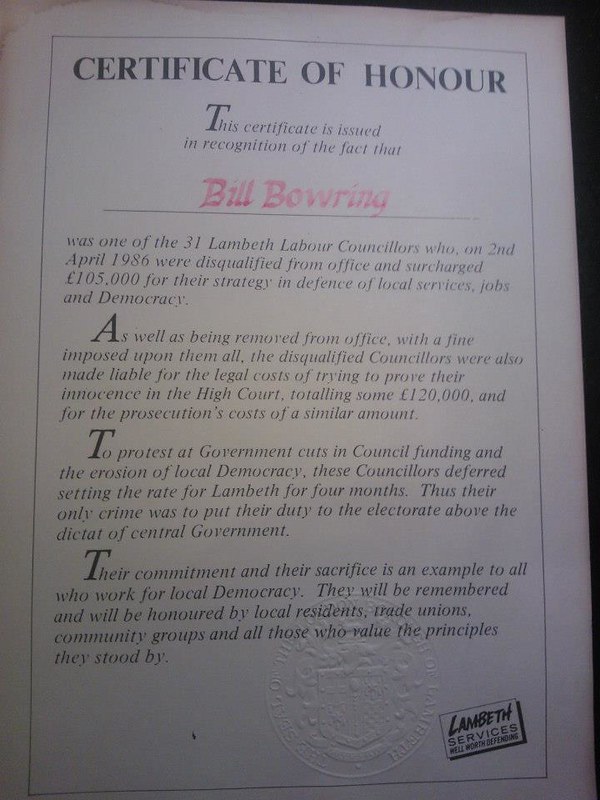|
Who Is Mr. Bowring?
On 30 March - 2 April 2017 ãîäà there will be Urals International Human Rights School on prisoners' rights under the ECHR. One of the trainers is professor Bill Bowring. Apply by 26 February îíëàéí. Organisers spoke to professor Bill Bowring and learned interesting facts of his life:
"I'm really American - my mother (family name Schuyler) was born in Clinton, Missouri, and grew up in St Louis. She was Dutch-American, and her ancestors came to New Amsterdam in the 17th century, and fought against the British in the American Revolution. My father was born in an English family in what is now San Jose, California. His family were Noncomformists (protestants who refused to be part of the state Church of England) and Republicans (they supported Cromwell in the Civil War) and most of them left for Canada in the period of repression (Peterloo Massacre etc) after the Napoleonic wars. There are many Bowrings in Newfoundland, Canada.
 (Áèëë òðåòèé ñïðàâà) (Áèëë òðåòèé ñïðàâà)
My father fought through WWII in the British Army, in France, North Africa and Italy; my mother came to work in the US Embassy in London after WWII as a scientific attache; she had a Masters degree in Biochemistry. My parents met through relatives in California, and settled in England. I am the oldest of five children. One of my brothers is trans-gender, female to male - and has a PhD in Microbiology. He is Administrator of the UK Lesbian and Gay Immigration Group.
I won a scholarship - in Ancient Latin and Greek - to Tonbridge School, a very prestigious private boarding school, and hated it. I was there from 1962-1966. I became rather rebellious, was several times subjected to beating (corporal punishment) by senior boys ("Praeposters"), and left as soon as I could. From age 15 I started travelling by myself, to France and Spain. I have been a Labour Party member since 1966, when I campaigned for Harold Wilson.
I left school at 16, and went to work, as a tally clerk (counting the cargo in and out), on a tramp ship, 8,000 tons, from Liverpool. The officers were from North-East England, Geordies speaking a dialect with many Norwegian words, and Northern Nigeria, Hausa; the crew were all from Sierra Leone, Muslims. We worked our way down the West Coast of Africa, stopping in port every few days, as far as Port Victoria and Douala in Cameroun. We were in Freetown, Sierra Leone, for the coup d'état in which Siaka Stevens was overthrown by Antony Juxon-Smith, were in Ghana a couple of years after the downfall of Kwame Nkrumah (we docked several times in the port of Tema, built by the USSR), and were deep in the creeks of Rivers State in Eastern Nigeria just before the start of the Biafra war.
We were due to go round Africa and back through the Suez Canal, but the 1967 war between Israel and the Arab states broke out, so we were chartered by a French company, Compagnie Maritime des Chargeurs Reunis, repainted our funnel, and crossed the Atlantic. We worked up the East Coast of the USA, from Jacksonville, Florida, to Halifax, Nova Scotia, in Canada. We were strike-bound for two weeks in New York, and joined the huge anti-Vietnam War protest, the March of a Million, hearing Dr Spock and Stokely Carmichael. We returned to West Africa and back to England.
I did not get into Cambridge - I had a serious row, about the English Civil War, with the dons at Peterhouse College where I went for interview - and was accepted at the new University of Kent at Canterbury, where I studied Philosophy - which continues to be my passion. In 1968 I went in the summer vacation to the US and worked in a Continental Can factory on the Hudson River in New York State. With many other young people I hitch-hiked to Chicago, and joined the demonstrators supporting Eugene McCarthy, the anti-Vietnam war candidate, against Hubert Humphrey, at the Democratic Party Convention. Mayor Daly called out the National Guard against us, and we faced bayonets and tear-gas. I hitch-hiked, with a black eye and tears in my clothes, down to Springfield, Missouri, to see my grandfather, living in terrible circumstances, and a real Fascist.
I graduated from Kent in 1970, and after working directing traffic at Dover Docks, and in a paper factory, found that it was possible to become a lawyer in two years: one year conversion, one year vocational course. While studying in 1973-4 I worked at the Greater London Council. I was called to the Bar of England and Wales in 1974, and began to practise as a barrister in 1976, in the Chambers of which I am still a member. We were 10 barristers then, all Jewish except for me, and more than 65 now.
From 1978 to 1986 I was an elected Labour Party Municipal Councillor in the London Borough of Lambeth, population 250,000, twinned since WWII with Moskvoretsky Rayon in Moscow. I first travelled to Russia (USSR) as part of Town Twinning, in 1983, fell in love with the language, and started learning Russian in 1985.

Margaret Thatcher came to power in 1979, and was determined to defeat the trade unions and Labour-controlled local government. In 1982 she won the Falklands (Malvinas) War against Argentina, and in 1984-5 defeated the coal miners in the Great Miners Strike. In 1986 she abolished the Greater London Council, and prosecuted me and my colleagues at Lambeth - and Liverpool City Council - for "wilful misconduct", protesting against her policies. Her intention was to bankrupt us, a fate suffered previously by Labour councillors. We were convicted by the High Court, who described us as the "pinnacle of political perversity", fined us several hundred thousand pounds (surcharge), and banned us from holding public office for 5 years. We collected the money from our supporters in the labour and trade union movement. From 1976 to 1990 I practised full-time as a Barrister, first criminal law, then family and children law, and finally civil actions against the police, and conflicts between central and local government.

In 1987 I was invited, with a Belgian colleague, to conduct a fact-finding mission to Israel and Palestine, in the context of First Intifada. For the first time, international law, human rights, and the law of armed conflict came to life for me.
In 1990 a friend from Kent University invited me to teach Public International Law, Human Rights, and Constitutional Law with him at the University of East London. I taught there from 1990 to 1996; then at the University of Essex where I became a Reader in Law from 1996-2000; then at University of North London, which became London Metropolitan University, from 2000 to 2006 as a Professor; and then also as a Professor at Birkbeck College, University of London. I am Director of the Masters in Human Rights, and teach Public International Law and International Criminal Justice to undergraduates; and International Rights of Minorities, and a Clinical Course on taking a case to Strasbourg, to postgraduates. I supervise PhD students from Afghanistan, Argentina, Austria, Iran, Pakistan, Somalia, and Spain. I published my first scholarly article in 1992, and now have more than 100 publications (more than 20 in Russian), including two monographs.

In 1992, as a volunteer with the Kurdish Human Rights Project, I began taking many cases to the European Court of Human Rights. During this period I also began working with Memorial, Moscow Helsinki Group, Lev Ponomaryov and Karinna Moskalenko in Moscow, and in 2000 helped with the first six Chechen cases against Russia. In 2001 I applied for funding from the European Commission, and in December 2002 was granted ˆ1 million and founded in 2003 the European Human Rights Advocacy Centre (EHRAC) in partnership with Memorial. We recruited Philip Leach and his team from KHRP. The partnership continues. My name appears in more than 45 judgments of the Strasbourg Court.

In 1998 I met my wife Olga Svyatoslavna Brynza, who was working in the Ministry of Nationalities, and as a volunteer for Sergei Adamovich Kovalyov in the State Duna. Olga was a close friend of Kovalyov's pomoshnitsa, Irina Alexandrovna Yeryomina, and her acquaintances included Valentin Mikhailovich Gefter. In 1996 I helped Kovalyov to receive an Honorary Doctorate from Essex University - and also first worked with Sutjazhnik in Yekaterinburg. Olga and I married in Moscow in 1999, and now have two children Vanya (15) and Masha (9). Since coming to England Olga has graduated with a Higher National Vocational Qualification in Fine Art; a BA in Fine Art; and a Research MA by Project in Fine Art."
ÏÐÅÏÎÄÀÂÀÒÅËÜ ÓÐÀËÜÑÊÎÉ ÌÅÆÄÓÍÀÐÎÄÍÎÉ ØÊÎËÛ ÏÐÀ ×ÅËÎÂÅÊÀ?
On 30 March - 2 April 2017 ãîäà there will be Urals International Human Rights School on prisoners' rights under the ECHR. One of the trainers is professor Bill Bowring. Apply by 26 February îíëàéí. 09.02.2017
|



